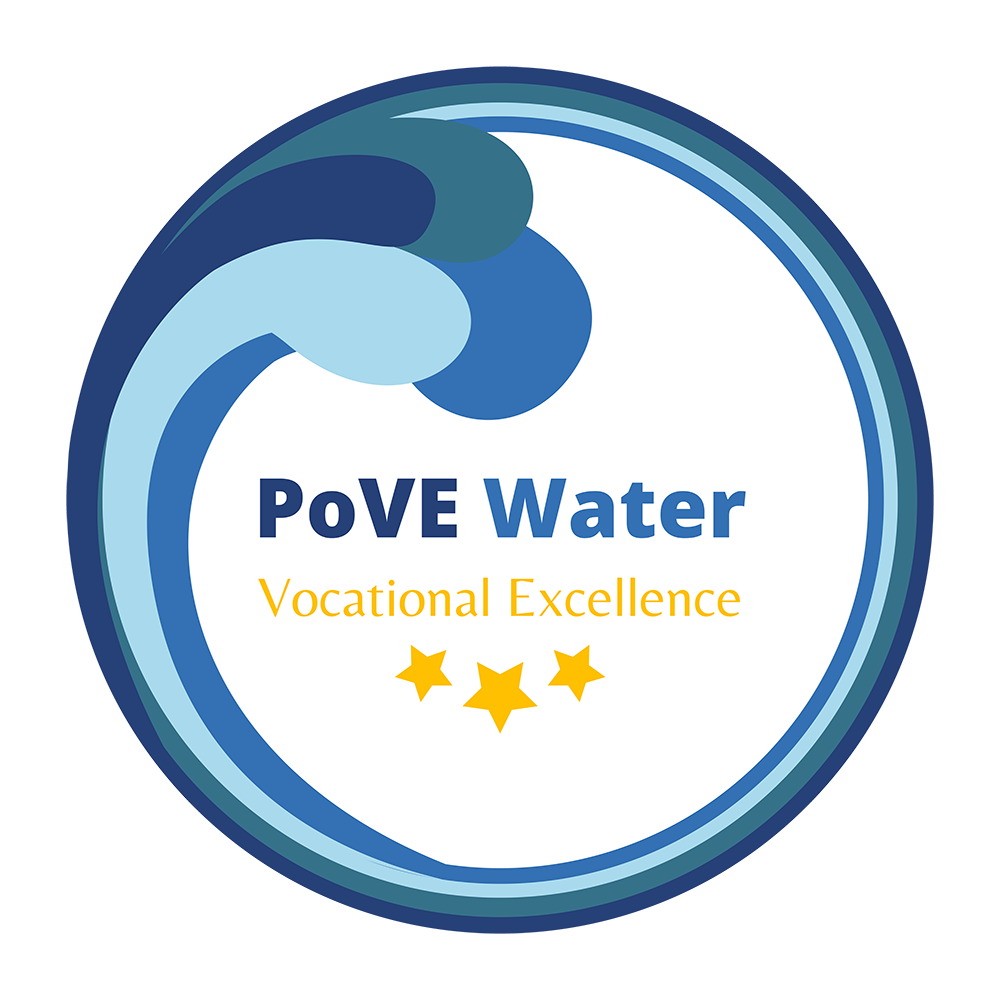Pilot PoVE Water aims to contribute to the fundamental change in knowledge, behaviour & perception and competences of target groups involved (including water technology sector at regional, national and European level). In addition, it plans to contribute to a transformation in educational practice and regional policy.
In order to measure the impact the project intends to make, an impact evaluation methodology was developed by project partner Crea H&E. Part of the impact evaluation plan is to take After implementation of the impact measurement plan, and conclusion of the baseline questionnaire at the start and impact questionnaire at finalisation, an impact analysis will be conducted. This will enable the Pilot PoVE Water Consortium to make evidence-based statements on the effectiveness of the Pilot PoVE Water project. Evidence based results on the outputs will encourage others to implement the projects methods as well and use the public result as developed under WP3, 4 and 5. This impact evaluation work package valorises the projects outcomes and create solid grounds for upscaling.
The impact evaluation activities that are included in the outputs development and implementation process and belong to the activities that lead to the final result include:
- a baseline measurement before target groups (VET students, staff, educational leaders, world of work stakeholders, knowledge triangle stakeholders) participate in Pilot PoVE Water activities, and;
- an impact measurement after they got fully involved in the programme.
PoVe Water project impact is measured in terms of the influence of the project activities on project participants. The assessment is conducted by all three stakeholder groups in the project – students; teachers and school managers; triple helix representatives. For PoVE Water project quasi-experimental technique, with multiple waves of data and multiple groups available but the treatment was not random, has been selected as a suitable technique for an impact evaluation. For processing the questionnaires will be used the counterfact analysis “a comparison between what actually happened and what would have happened in the absence of the intervention.” In practice there were questionnaires prepared for each of the three main target groups that will be used twice during the lifetime of the project, before activities planned in the project – baseline questionnaire, and after outcomes of the project have been delivered – final impact measurement questionnaire.
185 responses were collected from baseline questionnaire from 4 partner countries The Netherlands, Malta, Latvia and United Kingdom (85 students, 56 Triple Helix and 44 Teachers). In spite of the fact that different stakeholder groups reacted differently, there were though some interesting findings common for all stakeholder groups already from the baseline questionnaire. For example, the assessment of students‘ digital skills, flexibility and competences for innovation was very positive. Less positive though was the assessment of entrepreneurship competences of the students, opening the questions of implementing more activities in curricula that will deal with this specific competence. There were two other areas that need special attention in current and upcoming projects. Apparently the cooperation between different stakeholders in water resources management education is very limited and there is a big scope for development. This supports activities in individual regions to improve communication strategies among stakeholder groups. The next bottleneck of the sector development is in underdeveloped internationalisation strategies of the individual institutions. International cooperation creates basis for an exchange of good practices and personal growth of the project participants and thus should be embedded in future projects.
Download the PoVE Water Impact measurement Methodology here.
Download the Analysis of the Baseline questionnaire here.
